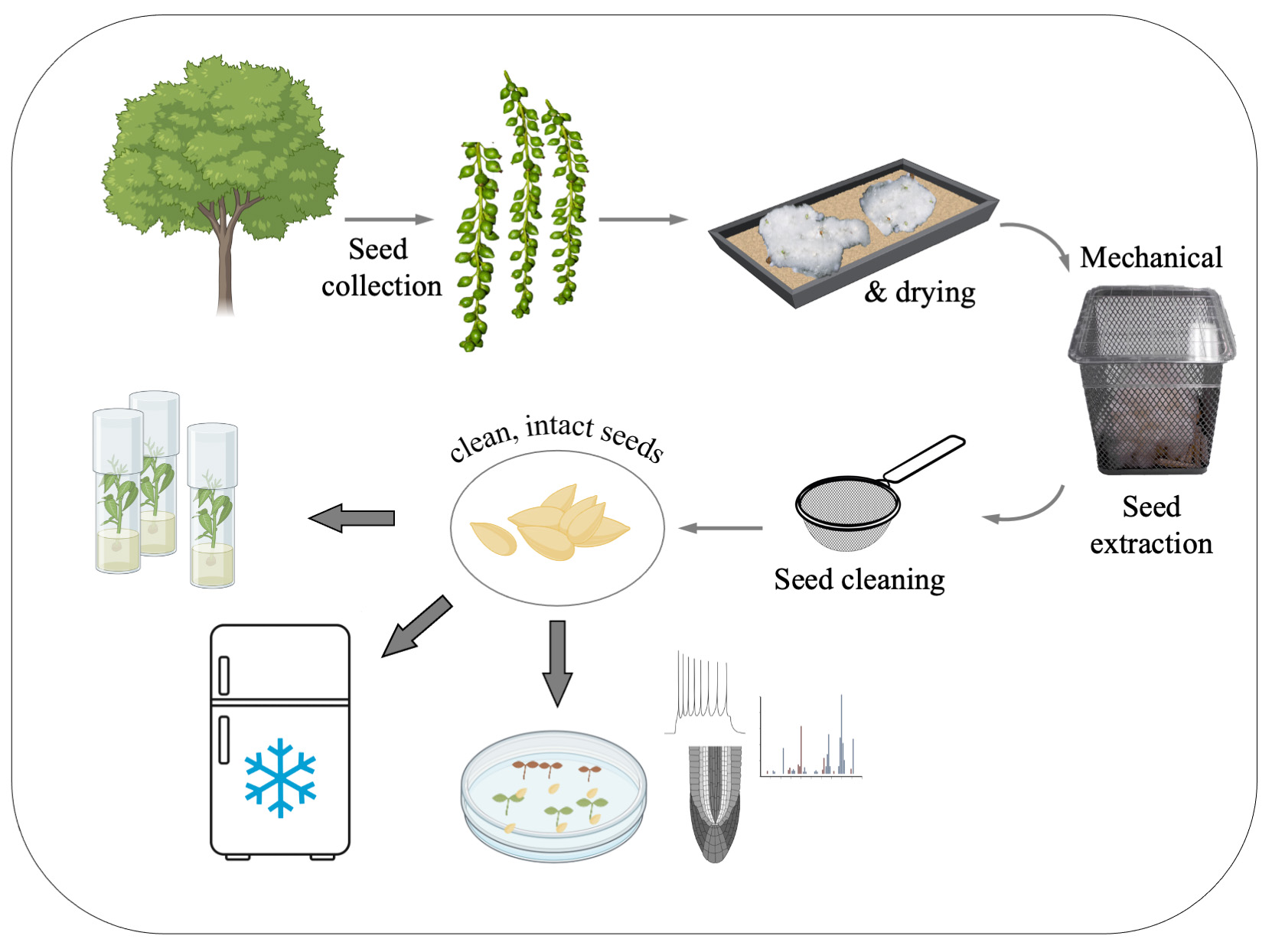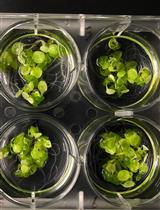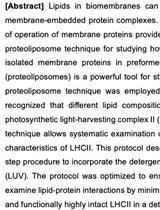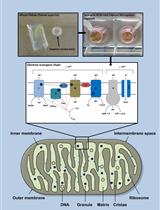- EN - English
- CN - 中文
Seed Collection in Temperate Trees—Clean, Fast, and Effective Extraction of Populus Seeds for Laboratory Use and Long-term Storage
温带树木的种子采集——清洁、快速、有效地提取杨树种子以供实验室使用和长期储存
发布: 2024年02月05日第14卷第3期 DOI: 10.21769/BioProtoc.4927 浏览次数: 2020
评审: Samik BhattacharyaSimab KanwalTie Liu
Abstract
Seeds ensure the growth of a new generation of plants and are thus central to maintaining plant populations and ecosystem processes. Nevertheless, much remains to be learned about seed biology and responses of germinated seedlings to environmental challenges. Experiments aiming to close these knowledge gaps critically depend on the availability of healthy, viable seeds. Here, we report a protocol for the collection of seeds from plants in the genus Populus. This genus comprises trees with a wide distribution in temperate forests and with economic relevance, used as scientific models for perennial plants. As seed characteristics can vary drastically between taxonomic groups, protocols need to be tailored carefully. Our protocol takes the delicate nature of Populus seeds into account. It uses P. deltoides as an example and provides a template to optimize bulk seed extraction for other Populus species and plants with similar seed characteristics. The protocol is designed to only use items available in most labs and households and that can be sterilized easily. The unique characteristics of this protocol allow for the fast and effective extraction of high-quality seeds. Here, we report on seed collection, extraction, cleaning, storage, and viability tests. Moreover, extracted seeds are well suited for tissue culture and experiments under sterile conditions. Seed material obtained with this protocol can be used to further our understanding of tree seed biology, seedling performance under climate change, or diversity of forest genetic resources.
Key features
• Populus species produce seeds that are small, delicate, non-dormant, with plenty of seed hair. Collection of seed material needs to be timed properly.
• Processing, seed extraction, seed cleaning, and storage using simple, sterilizable laboratory and household items only. Obtained seeds are pure, high quality, close to 100% viability.
• Seeds work well in tissue culture and in experiments under sterile conditions.
• Extractability, speed, and seed germination were studied and confirmed for Populus deltoides as an example.
• Can also serve as template for bulk seed collection from other Populus species and plant groups that produce delicate seeds (with no or little modifications).
Graphical overview

Background
Seeds are an innovation of Spermatophyta (seed plants). They are specialized dispersal units that safely package the plant embryo to allow for dispersal in space and time. Seeds are critical for successful propagation of the individual and maintenance of populations within a species but also for terrestrial ecosystems including forest ecosystems. Seeds can vary drastically in their characteristics, such as size, mass, color, or durability [1]. The smallest orchid seeds, for example, weigh less than 1 μg, while the large seeds of the double coconut palm (Lodoicea maldivica) can reach up to 25 kg in weight [2–4]. Poplar seeds lose viability within a few days or weeks after release, while seeds of a date palm from an archeological site were reported to have germinated after 2,000 years [5,6]. This means that seed collection, handling, processing, and storage need to be tailored carefully to the species or taxonomic group of interest to ensure seed viability and successful plant growth from the seed. Here, we focus on the seeds of temperate forest trees of the genus Populus.
Despite their importance for healthy forests, much remains to be learned about seed traits and biology in forest trees, ranging from the molecular mechanisms of seed production or seed performance under climate change to applications in forest genetic resources preservation and long-term forest management [7–11].
Trees in the genus Populus are among the most widespread trees in North America, including some of the largest and fastest growing hardwoods in this large geographic area [5,12,13]. This taxonomically complex genus comprises poplars, cottonwoods, and aspens. They are early successional in natural plant communities but are also used widely in intensive culture for biomass, pulp, and paper production, for lumber, as shelterbelts or urban trees, or in land reclamation [5,13]. Populus species are dioecious, reach sexual maturity at 10–15 years of age, and produce seeds every year once matured. The number of seeds produced is remarkable: 28–54 million seeds have been reported for individual trees of Eastern cottonwood (P. deltoides) and European aspen (P. tremula) [5,14,15]. The seeds themselves are small and covered with a significant amount of hair (cotton or white fluff) that allows for easy wind dispersal. Seeds do not show dormancy, germinate quickly under suitable conditions, and can lose viability rapidly under natural conditions [5,16]. These characteristics impose challenges on seed collection, cleaning, and storage. Seed collection, therefore, needs to be timed precisely with the seasons and seed ripening on the trees. Moreover, extraction of seeds from the difficult-to-separate seed hair requires careful handling to prevent damage to the thin seed coat. Finally, seeds need to be stored properly to ensure longer lasting viability.
Agroforestry equipment such as seed macerators or grinders and fanning mills can be used to extract large numbers of Populus seeds [5,17]; however, seed viability declines strongly within two days, possibly due to damage of the delicate seed coat. Similarly, brushing against a coarse screen released seeds from the white cotton, but the extraction efficiency was low (20%), and seeds remained viable only for a few days [18]. Smaller quantities can be collected using a vacuum cleaner, and separation from cotton can be done in a nested set of soil sieves and applying a stream of air [19–21]. Based on this rationale, we established a method for seed extraction that leaves the thin seed coat intact and that yields very clean seeds, suitable for molecular analyses. The method is fast, simple, and effective. It uses household items that can be obtained easily, that are used in every lab, and importantly, that can be cleaned and sterilized easily. Storage of the extracted seeds was tested under different conditions. Germination tests confirmed high viability of seeds directly after extraction as well as after extended storage time. Growth in tissue culture without contamination furthermore confirmed purity of seeds.
Due to the high quality, intactness, and purity of seeds extracted with this protocol, these lend themselves well to analyses of seed responses under controlled conditions in tissue culture, also germinating well on soil and other substrates. The protocol was specifically developed for Populus to separate seeds from the attached tufts of hair but could equally be adjusted for the extraction of small, delicate seeds in other species that need separation from attached structures or impurities.
Materials and reagents
Biological materials
Female trees from the genus Populus that carry catkins with fruits that are near maturity (see Figure 1). Nearly mature catkins develop between late spring and earlier summer in temperate climates. The precise timing of seed maturation will depend on geographic location and local weather conditions.
The reproductive material used in this protocol was collected from Populus deltoides Bartr. ex Marsh. trees growing in Ontario, Canada in the Greater Toronto Area (GTA) and at the University of Toronto Mississauga campus. Details on location of the trees and on seed collection are given below in Table 1.
Table 1. Trees and material used in this study
Genotype (tree) Species Latitude Longitude Elevation (m) Collection date POP31 P. deltoides 43.6311319 -79.4715803 75 2023 POP32 P. deltoides 43.6310720 -79.4713711 75 2023 POP50 P. deltoides 43.6294418 -79.474405 70 2023 POP50 P. deltoides 43.6294418 -79.474405 70 2022 POP29 P. deltoides 43.5464906 -79.6599571 110 2021 POP19 P. deltoides 43.5461274 -79.6605435 114 2023
Reagents
Murashige & Skoog (MS) basal salt mixture (PhytoTech Labs, catalog number: M524)
Plant preservative mixture (PPM) (Plant Cell Technology, catalog number: PPM)
Agar (BioShop, catalog number: AGR003)
Potassium hydroxide (KOH) (BioShop, catalog number: PHY202)
Solutions
MS medium (100 mL) (see Recipes)
Recipes
MS medium (100 mL)
Adjust pH to 5.8 using 2.5 M KOH and autoclave. Cool medium to approximately 60 °C and add 200 μL of PPM (0.2% final concentration) immediately before pouring plates. The given volume yields four plates.
Reagent Final concentration Quantity or Volume MS 0.5× 0.2166 g Agar 0.7% (w/v) 0.7 g H2O n/a to 100 mL PPM 0.2% (v/v) 200 μL Total n/a 100 mL
Laboratory supplies
Petri dish, round, 100 mm × 15 mm (Fisherbrand, catalog number: 2071-FB0875712)
Petri dish, square, 100 mm × 15 mm (Fisherbrand, catalog number: 08-757-11A)
Borosilicate glass vial (VWR, catalog number: 66011-085)
50 mL conical centrifuge tube (FroggaBio, catalog number: TB50-500)
Splinter forceps (Almedic, catalog number: 7737-A10-600)
Micropore tape (3M Micropore, catalog number: 1533-0)
Household items
Paper lunch bags (1.88 L) (Canadian Tire, catalog number: 053-0200-8)
Plant propagation tray with lid (The Grow Depot, model: Mondi Propagation Tray 10 × 20)
Wire mesh pencil cup (10 cm × 8 cm × 8 cm); pencil cups can be obtained at any office supply store (e.g., Grant & Toy, Dollarstore)
Round bamboo skewer, 5 mm in diameter and cut into 2–2.5 cm pieces. Round bamboo sticks can be obtained at any retail or grocery store
Stainless steel fine mesh kitchen strainer (mesh size 30 and 40)
White paper sheets
Equipment
Micro bead sterilizer (Fisherbrand, catalog number: 14-955-342)
Laminar flow hood (Thermo Scientific, model: Heraguard ECO)
Growth chamber (Conviron, model: MTPS144)
Software and datasets
R Studio v 2023.03.0+386 [22]
R v4.3.x [23]
Procedure
文章信息
版权信息
© 2024 The Author(s); This is an open access article under the CC BY-NC license (https://creativecommons.org/licenses/by-nc/4.0/).
如何引用
Bhutta, N., Nunez-Martinez, O. F., Mei, C. and Bräutigam, K. (2024). Seed Collection in Temperate Trees—Clean, Fast, and Effective Extraction of Populus Seeds for Laboratory Use and Long-term Storage. Bio-protocol 14(3): e4927. DOI: 10.21769/BioProtoc.4927.
分类
植物科学 > 植物育种 > 种子贮存
植物科学 > 植物生理学 > 新陈代谢
生物科学 > 生物技术
您对这篇实验方法有问题吗?
在此处发布您的问题,我们将邀请本文作者来回答。同时,我们会将您的问题发布到Bio-protocol Exchange,以便寻求社区成员的帮助。
Share
Bluesky
X
Copy link












